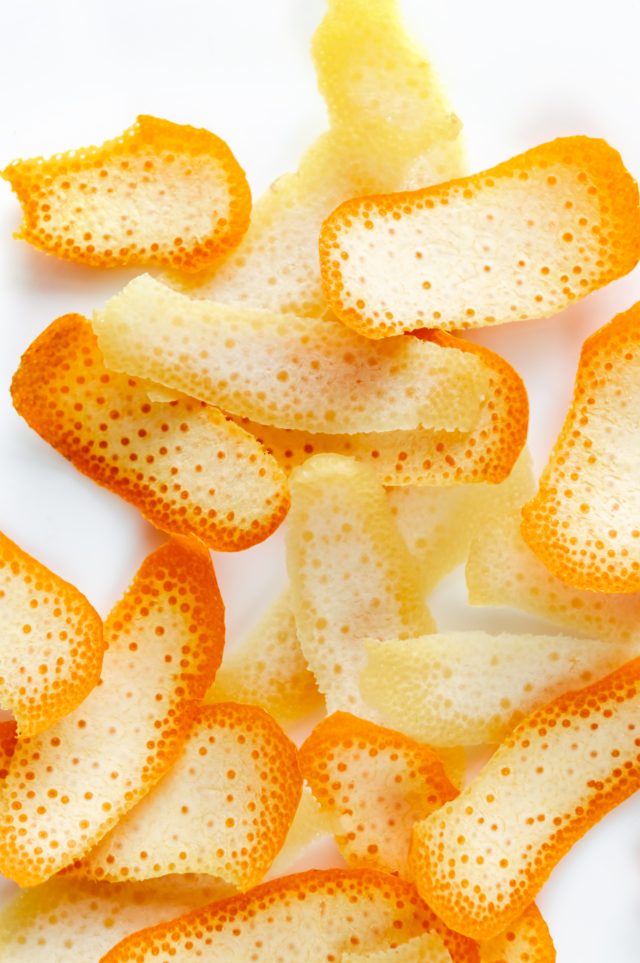
You’ve heard an apple a day keeps the doctor away. Now orange peels may improve your heart health.
Yu Wang, an assistant professor of food science and human nutrition at the UF Institute of Food and Agricultural Sciences, has been awarded a $500,000 grant from the U.S. Agriculture and Food Research Initiative, part of the USDA. With the award, Wang plans to lead a research team to ensure extracts from orange peels improve the gut’s ability to stave off fatty linings in your arteries.
Recent research has shown that gut bacteria help develop cardiovascular disease. When they feed on certain nutrients during digestion, gut bacteria produce trimethylamine N-oxide (TMAO) as a byproduct. TMAO levels are powerful predictors of future cardiovascular disease, according to researchers at the Cleveland Clinic.
Wang and her colleagues want to work on that gut bacteria. They will study how orange peels promote gut health and, therefore, overall human health.
Americans generate about 5 million tons of orange peels a year, Wang said. Right now, the peels are mostly treated as waste, she said. But the Food and Drug Administration considers natural orange peel extracts safe for human consumption. So, Wang wants to put those peels to better use.
“This research could be critical to enhancing the cardiovascular health of millions of people worldwide,” said Wang, a faculty member at the UF/IFAS Citrus Research and Education Center in Lake Alfred, Florida. “In addition to improving consumers’ health, our research results could provide additional economic returns, benefiting U.S. agriculture and food systems.”
For the new UF/IFAS-led project, researchers hypothesize that orange peels will modify gut microbiota and help prevent atherosclerosis, a disease characterized by fatty deposits on the inner walls of arteries.
When gut microbiota break down chemicals called choline and carnitine, the process eventually produces trimethylamine (TMA). Enzymes can then convert TMA into TMAO, Wang said.
But orange peels contain components that interfere with TMA enzymes, Wang said. Researchers believe that action will help prevent atherosclerosis.
To test these hypotheses, the researchers will combine animal studies with enzyme tests to assess how orange peel extract consumption can prevent cardiovascular diseases.
In her own preliminary study, Wang experimented with three groups of mice to see if she was going in the right direction with her research proposal. One group was fed a regular diet, the second was fed a regular diet plus carnitine, which induced TMAO. The third group was fed a regular diet, carnitine and orange peels.
They found orange peels altered the composition of bacteria in colon in the mice fed with regular diet, carnitine and orange peels.
“Within three years, we expect to understand more about the mechanisms associated with orange peel consumption, TMAO formation and the prevention of atherosclerosis,” Wang said. “We hope this project can not only positively impact human cardiovascular health via the promotion of gut health, but will also provide a simple and an efficient usage of orange peel.”












